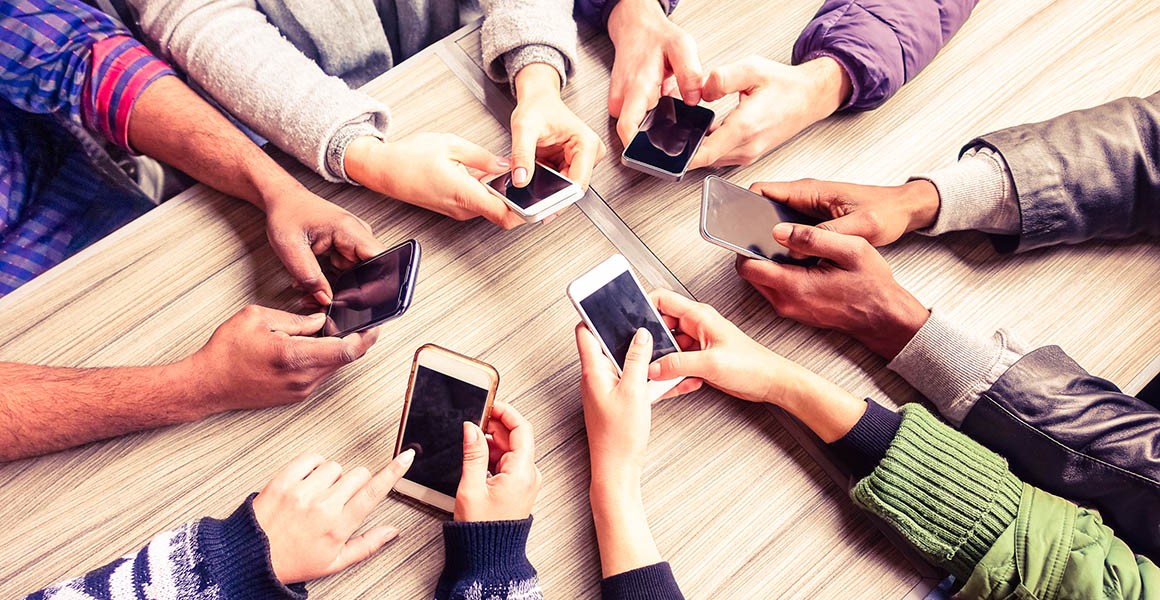
I was in New York last weekend to visit my daughter who works as an attorney for the City of New York. I enjoy our time together as we love the arts, tasting different foods, and walking around the city where there is always a new place that I have never visited. While attending an event on Friday late afternoon, we were approached by a young man, Shane Hankins, who asked us if we would like to “Unplug” for 24 hours. That meant that we would turn our telephones off and we would not use any electronics for 24 hours. We looked at each other, and we both had the same reaction: “Why not? We are here to enjoy each other and to connect in person” (we often speak on Face Time since I live in Florida and she lives in New York). With a smile in our faces, we turned off the telephones, and we were given “Cell Phone Sleeping Bags” to put our phones away.
What a wonderful idea Shane and his partner had! To create a movement, an organization to help people commit to turning their telephones off! You can find more information about the movement at the website: “nationaldayofunplugging.com”. There is a National Day of Unplugging coming up in March of 2016. I would like to not wait this long: I would like to spread their wonderful idea much before then, and to tell parents, couples, and individuals to try to commit to unplugging at least one day (or one evening) a week.
The topic of “unplugging” is so relevant these days that even the New York Times published an article today (August 5, 2015)about “unplugging” from electronic devices when someone goes on vacation:
http://www.nytimes.com/2015/08/06/fashion/unplugging-how-to-vacation-like-its-1999.html?smid=fb-nytimes &smtyp=cur &_r=2
It is very important for children and for adults to have time together without being connected to an electronic devise. Children learn from their parents to respect meal times and to not interrupt to talk on the telephone or “to go online”. Developing good communicating habits during family time start when children are really young. I often see parents “spending time” with their children, but they are also looking at their telephones, at the computer, or at another devise. Even little babies look at their parents (like when they are nursing): If they do not receive eye contact back from their mothers (the most wonderful connection and communication before verbal communication), they will learn that it is not important to look at people when they are communicating with them.
With time, children start using electronic devices (if their parents permit them to use them early in preschool years). Many parents do not know that the American Academy of Pediatrics recommends less than one hour of activity with electronic devices for children younger than 7 years old. Also, they recommend only one hour a day for school age children. With certainty, I have learned from thousands of parents I have worked with that the time their children spend with electronic devices is a lot longer than what is recommended by professionals.
As children grow, they learn that it is easier to send a “message” instead of calling their friends. As a result, there are many adolescents who have a “lot of friends” but who rarely talk to them in person. We are already witnessing the result of children who grow up “socializing on line” as they do not learn the social skills necessary for relating in person with others the same age, with adults, and with co-workers later on. In addition, some adolescents suffer from anxiety if their friends do not respond to an
Instagrams or from an Instant Message they send. I have actually seen teenagers that measure how popular they are based on how many “friends” they have on Facebook or on other social media organization.
So, why not commit to “unplugging” at least once a week to spend time with family. I would even say that ideally it would be good if families “unplug” during meal times, and that children and adolescents put their telephones away before going to sleep. Some cultures and religions have the ritual of unplugging from electronic devices, such as the Shabbat for the Jewish religion.
I would like to congratulate the creators of “nationaldayofunplugging.com” for their movement. Please, if you would like more information about the benefits of “unplugging”, you are welcome to write and you can learn more about the movement by going to their website.
